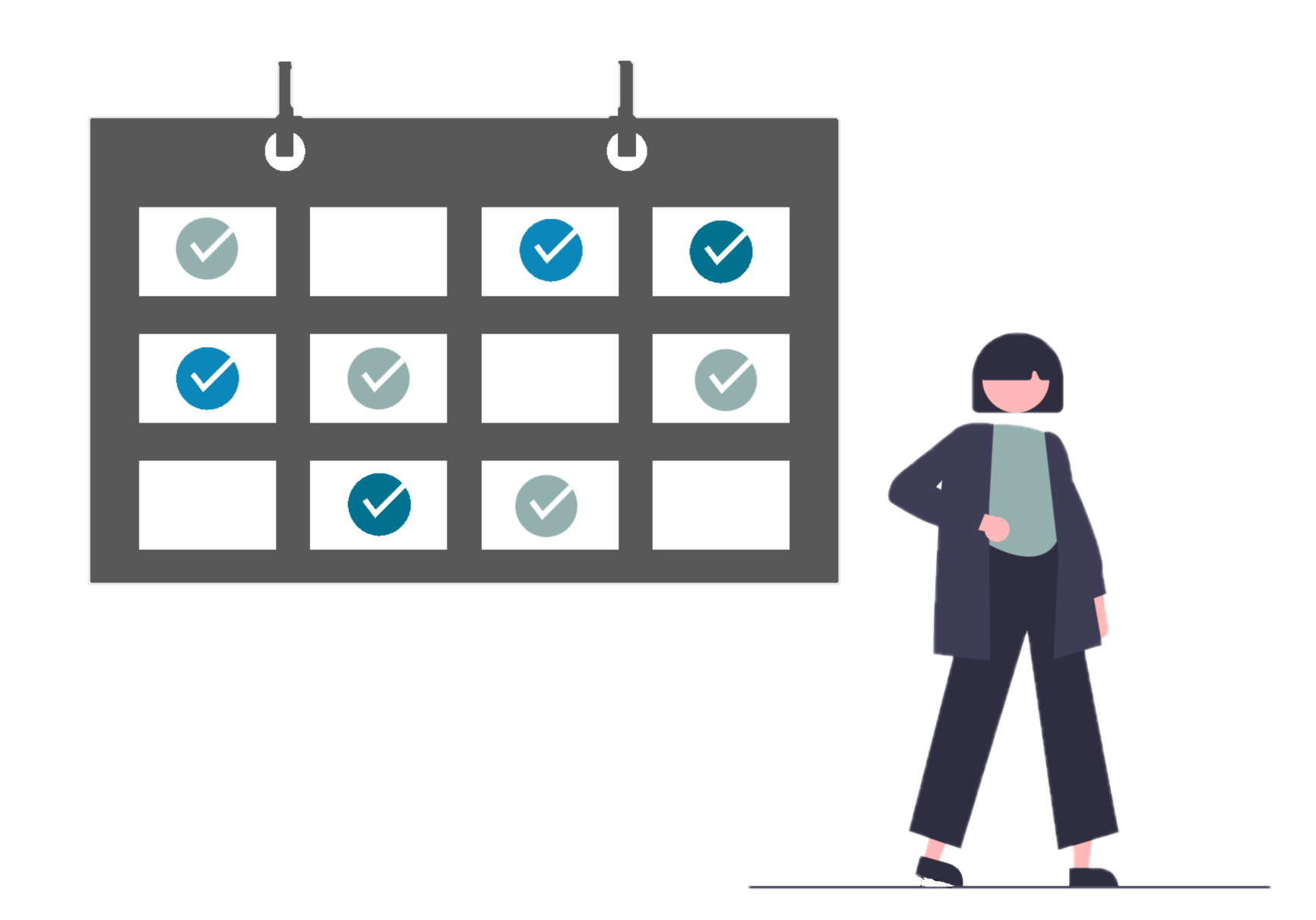9.1 HLTH 3056 Preparation Before the First Day of Community Placement

During the final week of your HLTH 3054 Clinical Professional Practice Placement, expectations for the HLTH 3056 Community Professional Practice Placement course will be reviewed.
A pre-assigned schedule will be provided to you prior to the start of your HLTH 3056 Community Placement. All shifts scheduled will be arranged by the agency in consultation with the Clinical Advisor and Placement Coordinator in advance of the course start date. Changes cannot be made to your schedule without prior approval from the agency and the PSW Program Coordinator.
Getting Ready for Your Community Professional Practice Placement
As a Personal Support Worker (PSW) student, your placement is a vital opportunity to apply classroom knowledge to real-world healthcare settings, build professional relationships, and develop your skills in providing compassionate, client-centred care. Review the below expectations to ensure you are well-prepared and ready before your first day of the Community Professional Practice Placement.
 Review Placement Expectations
Review Placement Expectations
Before starting your Community Placement, familiarize yourself with the policies, procedures, and expectations of the PSW program by reviewing your HLTH 3056 curriculum and the PSW Program Manual. The curriculum will include additional information regarding dress code, attendance requirements, communication protocols, and the Domains of Practice Competencies for PSW students.
- Review your HLTH 3056 Course Curriculum & PSW Program Manual (found in your Fanshawe Online HLTH 3056 course).
- Review Synergy clearance ensuring all items are up to date (PVSC is required every 6 months).
- Bring photocopies of ALL of the forms uploaded to Synergy (they will be required by the placement agency).
- Review this OER to review clinical placement expectations.
- Attend the mandatory Fanshawe College Clinical Orientation (start of Level 2).
- Review required preparation materials and/or online modules provided by your assigned Community agency PRIOR to starting your Community Professional Practice Placement.
 Clear the Synergy pre-placement process requirements
Clear the Synergy pre-placement process requirements
See Chapter 4: Preparing for Clinical Professional Practice Placements to review the pre-placement requirements.

This is due the month PRIOR to the start of the HTLH 3054 Clinical Professional Practice Placement!
 Note ALL Deadlines
Note ALL Deadlines
Use a calendar or digital planner to track important deadlines. Missing deadlines can result in delays or ineligibility for placement. Setting reminders can help you stay accountable and reduce last-minute stress.
PSW Program 1st semester
- Pre-placement documentation completion and upload to Synergy.
- Immunization updates.
- Assignment due dates.
- Tests/Exam/Quiz due dates.

PSW Program 2nd semester
- Quiz/Assignment due dates.
- Orientation to Placement on campus date.
- Orientation to Placement at the agency date.
- Reflection/Assignment due dates.
- Midterm Evaluation due date.
- Final Evaluation due date.
- Schedule clinical dates and times in calendar.
** Plan to be at your assigned setting 15 minutes prior to the start of your clinical placement shift.
 Prepare your Supplies
Prepare your Supplies
Ensure you have all necessary supplies ready before your first day. This may include:
- Uniform/Scrubs that are clean and program-approved.
- Your Student Name tag. Visible at all times, worn on the front left side of your uniform, high enough to prevent client injury when providing care.
- Fanshawe College PSW crest sewn to the outermost portion of your uniform’s left sleeve (do not use staples or pins).
- Watch with a second hand clipped to your uniform.
- Black or white running shoes.
- A small notebook and pen for on-site note-taking.
- No jewellery is to be worn during your placement shift.
 Plan for Transportation and Scheduling
Plan for Transportation and Scheduling
 Know the location of your placement and plan your commute in advance. Consider factors such as travel time, weather conditions, and public transit schedules. If you rely on others for transportation, have a backup plan in case of unexpected delays. Also, consider how your placement schedule fits with your other commitments and plan in advance. Child care, work, and personal days are not acceptable excuses for missing placement.
Know the location of your placement and plan your commute in advance. Consider factors such as travel time, weather conditions, and public transit schedules. If you rely on others for transportation, have a backup plan in case of unexpected delays. Also, consider how your placement schedule fits with your other commitments and plan in advance. Child care, work, and personal days are not acceptable excuses for missing placement.
Clinical placements are subject to availability, and as such, it may be necessary to assign students to clinical agencies in an outlying community. Students are expected to make their own travel arrangements to all assigned clinical agencies.
Additional Preparation Strategies
Clinical Professional Placements are a key part of your learning experience in the PSW program. It can bring both excitement and challenges, so it is important to be adequately prepared. Set achievable goals, take care of your physical and mental well-being, and reach out to your Clinical Advisor when you need support.
Being well-prepared helps reduce stress and allows you to focus on learning. Knowing what to expect, staying organized, and completing your responsibilities on time will help you feel more capable and ready to engage in meaningful learning. With a proactive and open approach, you’ll be well-positioned to grow your skills and contribute effectively to the healthcare team.
Reflection Prompt: Preparing for Placement
Take a few minutes to reflect on the following questions before starting your HLTH 3056 Community Clinical Professional Practice Placement:
- What are two specific goals I want to achieve during this placement?
- What strategies can I use to stay organized and manage stress?
- Who can I reach out to for support if I encounter challenges?
Write your responses in a journal or share them with a peer or your Clinical Advisor at the beginning of your placement to help guide your experience.
Activity Description
Clinical Placement Preparation Checklist
Personal Preparation
- I have set 1–2 realistic goals for my placement.
- I have a plan to manage stress and maintain self-care.
- I know whom to contact if I need support (e.g., instructor, clinical supervisor, peer).
Academic Readiness
- I have reviewed key concepts from my theory and lab courses.
- I understand the expectations and responsibilities of my clinical role.
- I have read the course curriculum and placement guidelines.
Practical Preparation
- I have all required uniforms, name tags, and supplies.
- I know my placement schedule and location.
- I have arranged reliable transportation to and from the placement site.
Professional Mindset
- I am prepared to communicate respectfully with clients and healthcare team members.
- I am open to feedback and willing to learn from my experiences.
- I am committed to providing safe, ethical, and compassionate care.
Clinical Placement Preparation Checklist
Personal Preparation
- I have set 1–2 realistic goals for my placement.
- I have a plan to manage stress and maintain self-care.
- I know whom to contact if I need support (e.g., instructor, clinical supervisor, peer).
Academic Readiness
- I have reviewed key concepts from my theory and laboratory practice courses.
- I understand the expectations and responsibilities of my role as a PSW student.
- I have read the course curriculum and placement guidelines.
Practical Preparation
- I have all required uniforms, name tags, and supplies.
- I know my placement schedule and location.
- I have arranged reliable transportation to and from the placement site.
Professional Mindset
- I am prepared to communicate respectfully with clients and healthcare team members.
- I am open to feedback and willing to learn from my experiences.
- I am committed to providing safe, ethical, and compassionate care.
Adapted with permission from the HLTH 3056 Clinical Professional Practice Curriculum. 2025. © Fanshawe College.

